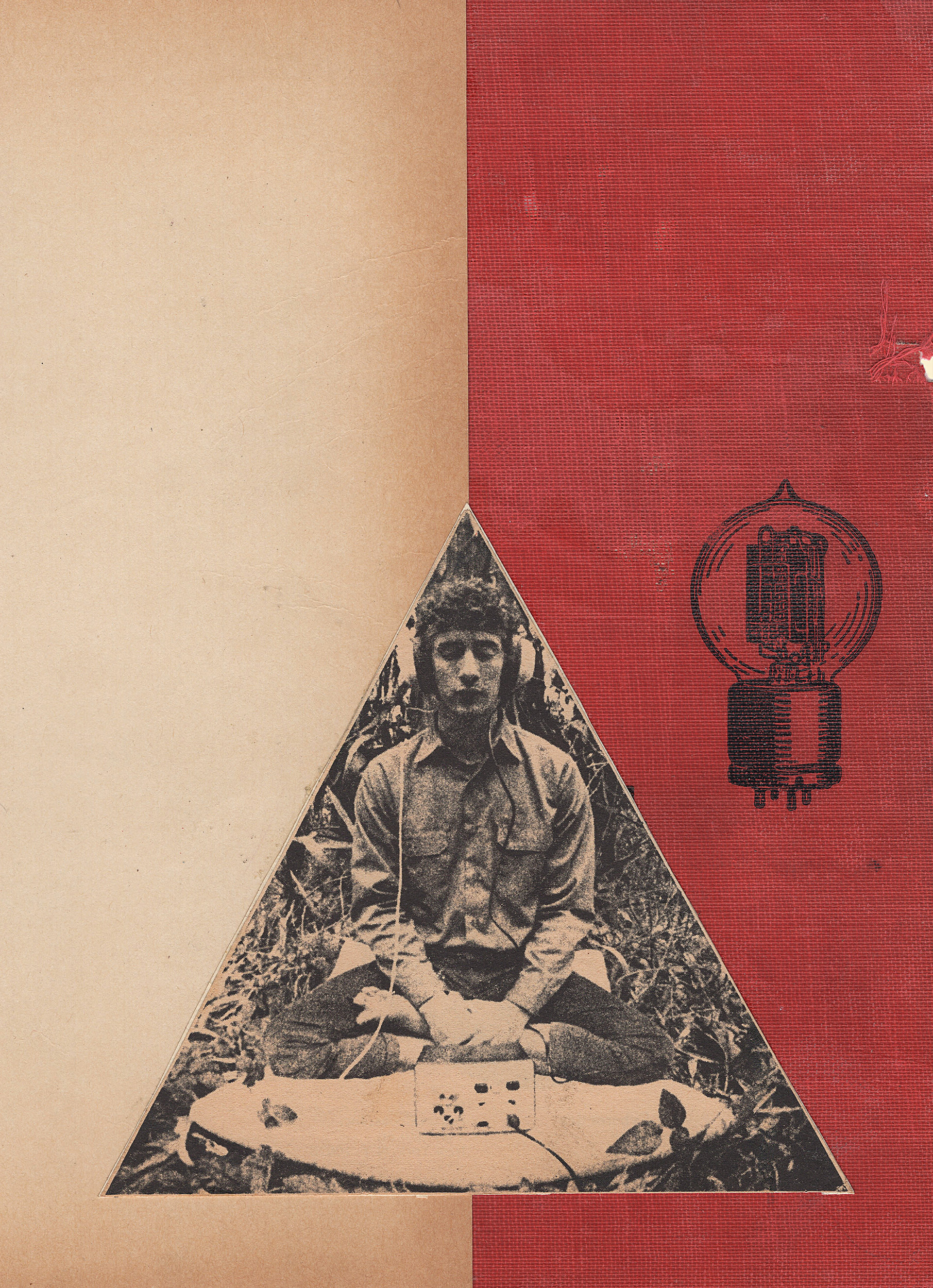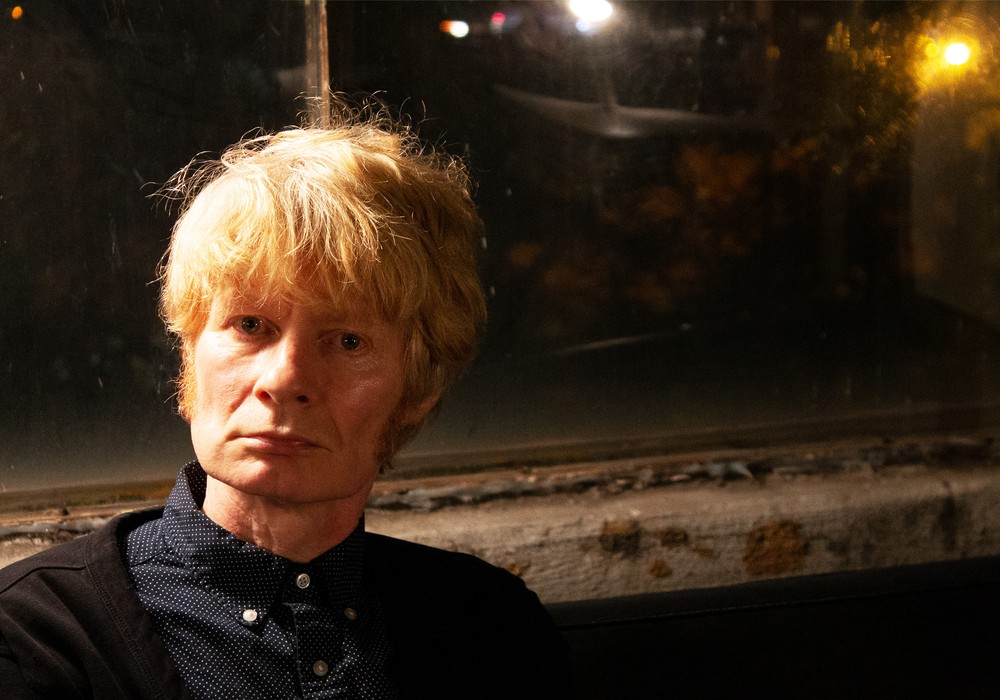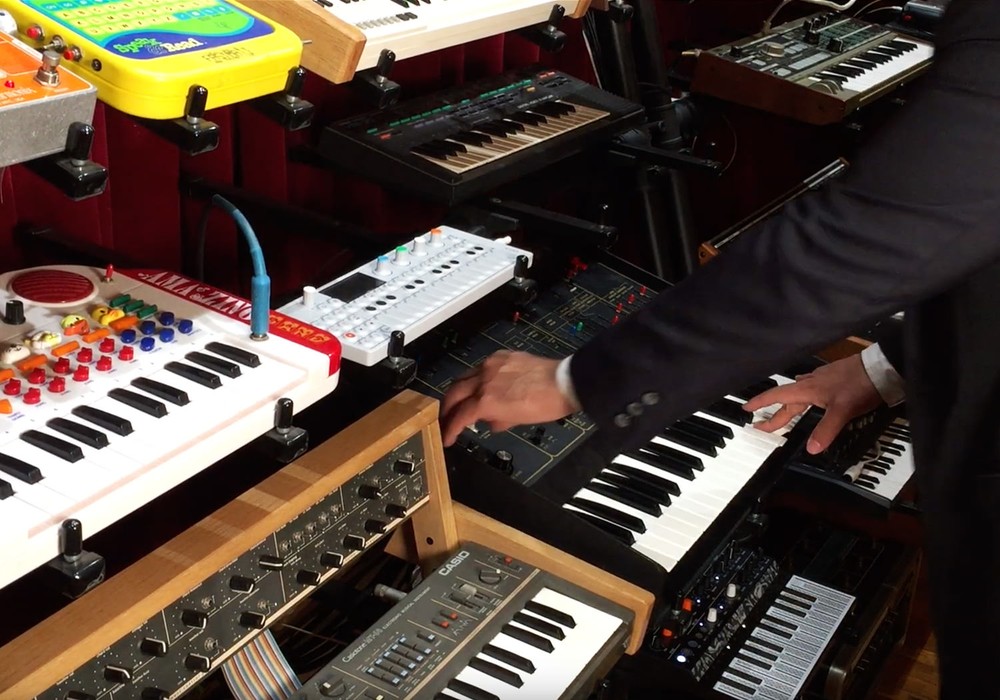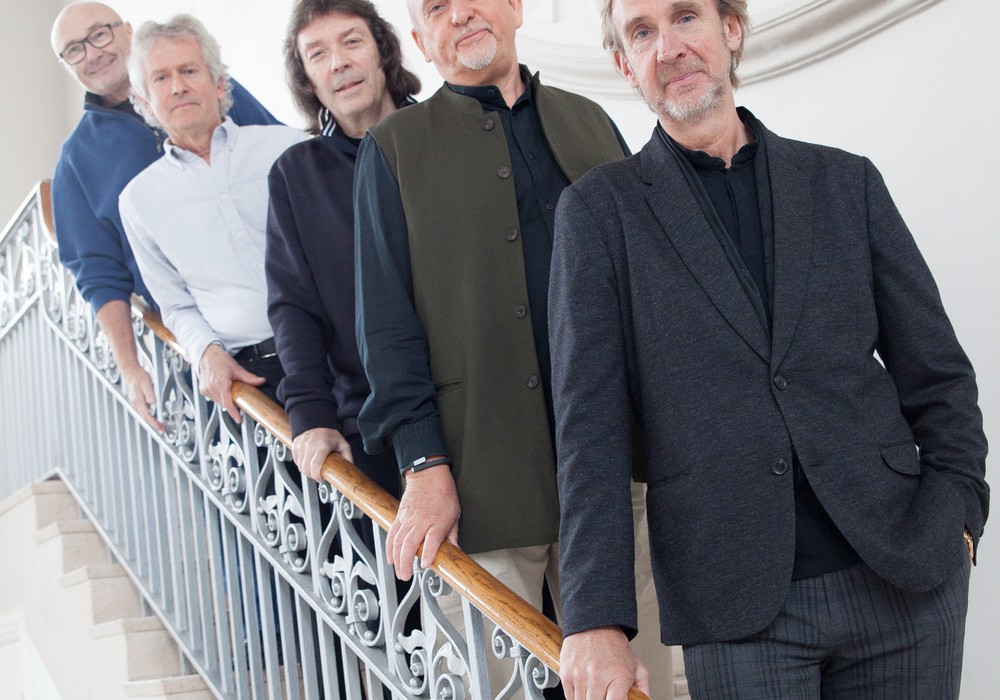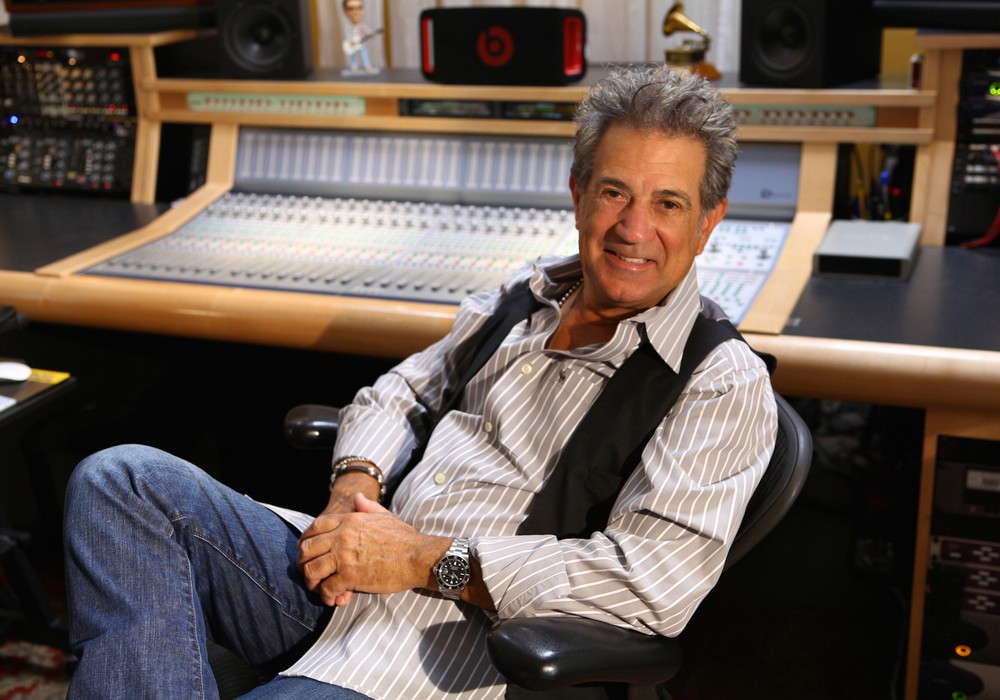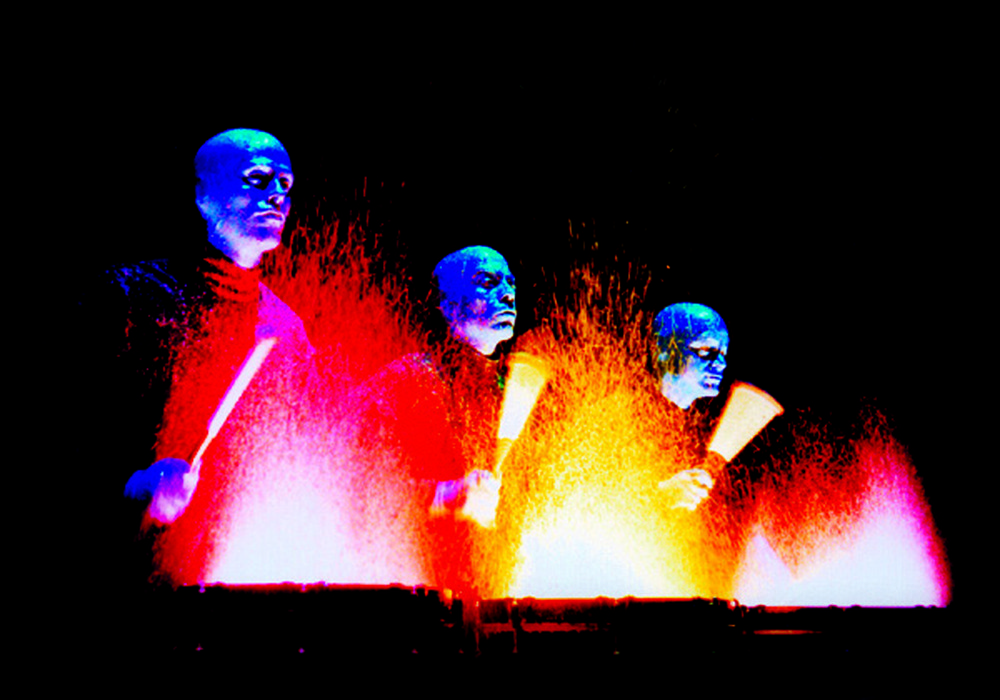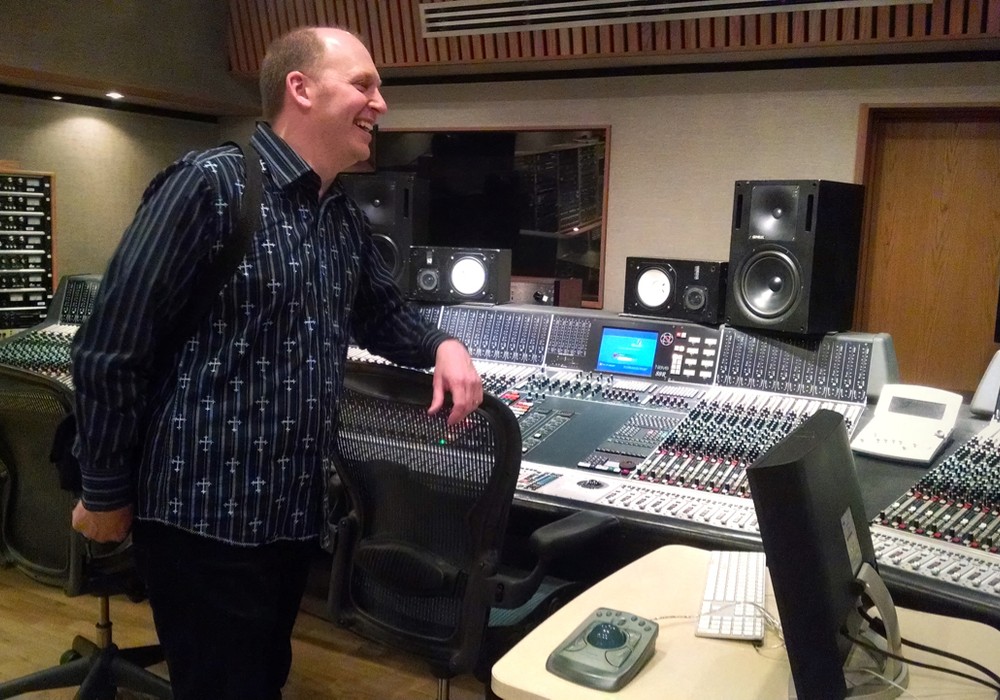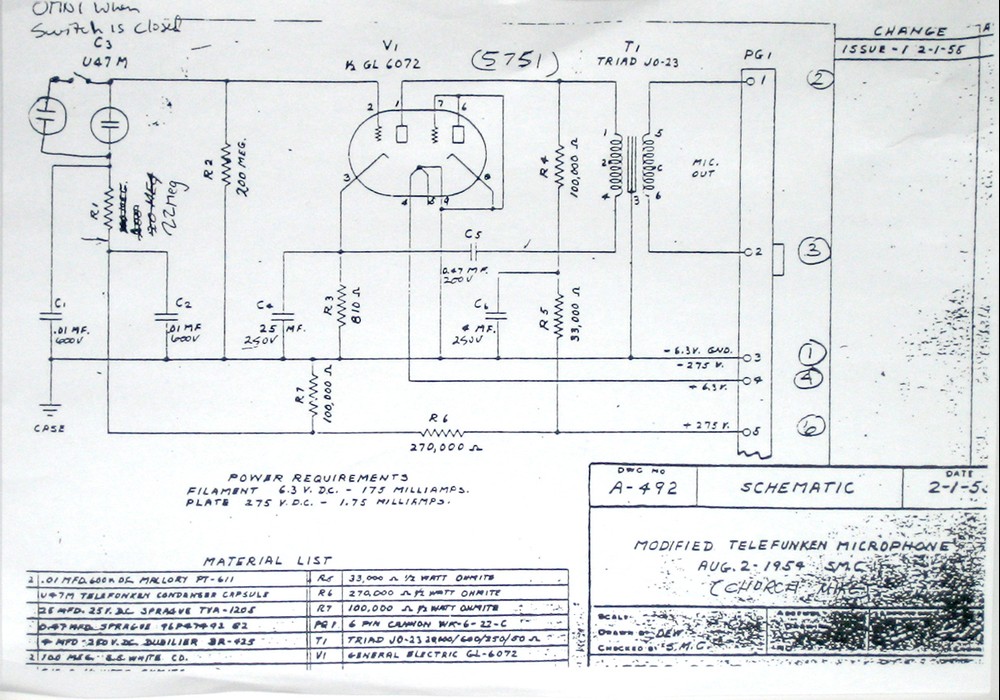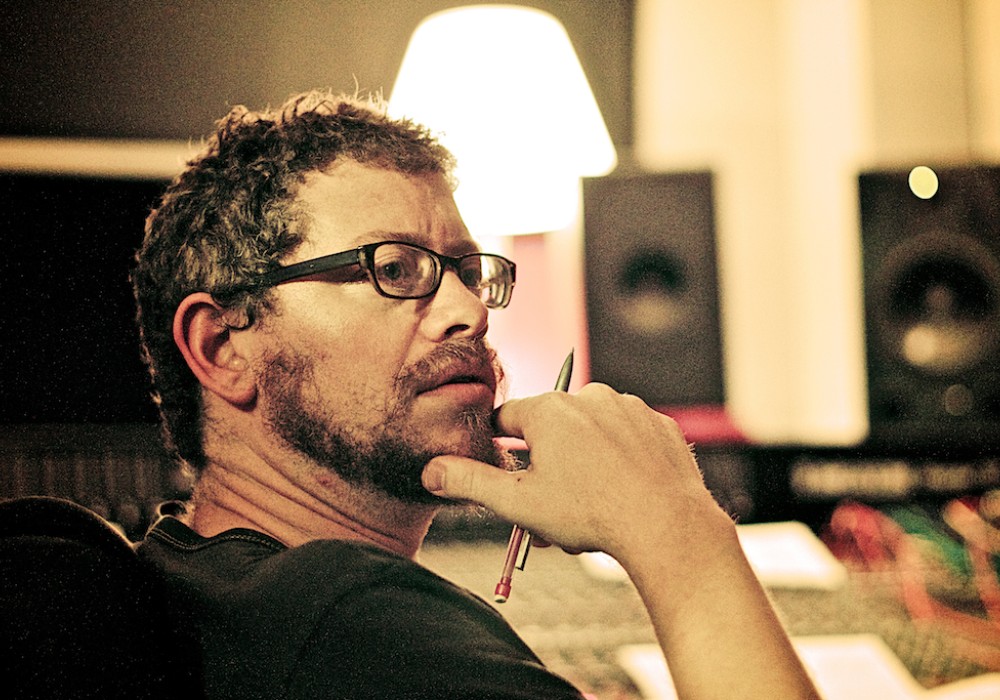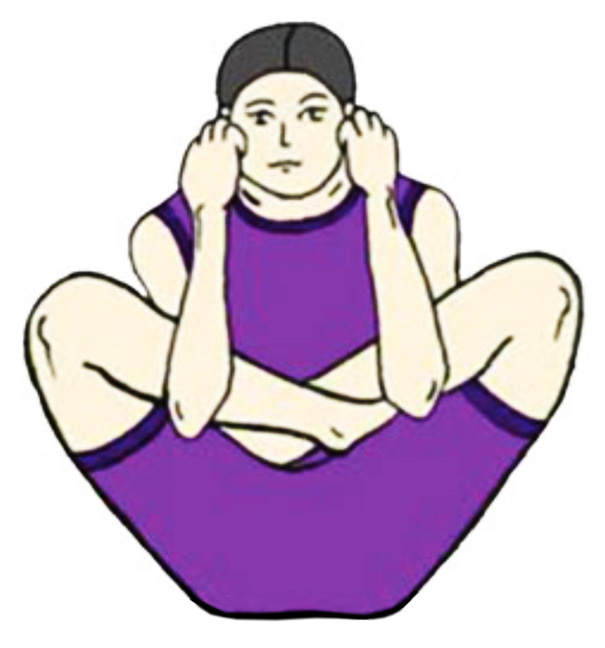
Composer, musician, and producer James George Thirlwell has been known as JG Thirlwell, Clint Ruin, Frank Want, and most famously, Foetus and its many incarnations. Lately he has been doing quite a bit of scoring for television, with Archer and The Venture Bros. among his credits. I dropped in at his Brooklyn loft a while back to learn more.
Were you making music in Australia before you moved to the U.K.?
No, I moved to London in 1978. That’s when I started making music. When I was a kid in Australia, I learned a couple of instruments. There were bad teaching practices. The first instrument I tried to learn was cello, and then some percussion. The problem was sight-reading, which I didn’t get a handle on before. I was learning it and trying to sight read, and their idea was, “Okay, he’s done it for a couple of months. Let’s put him in the orchestra.” They had to fill a seat in the orchestra; I’d be trying to play, but I’d get halfway through the first page and I’d be lost. I couldn’t catch up. The whole thing was so humiliating. I stopped doing that and then I started doing percussion. It would have been better to teach me some chords on a guitar. I loved music, and I still love music, obviously.
Yeah, I think so!
So, that was the end of that chapter of my attempting to play an instrument. When punk rock came along, that democratized the idea that you didn’t have to be a virtuoso. Everyone can play and pick something up and make sound with it. I bought a bass guitar, and I played along to records. When I moved to London, I was 18. I knew that I wanted to be involved in music. There was so much happening. From ‘78 to ‘83 was an amazing time to be there. Then I bought my first synthesizer, which was a [Electronic Dream Plant] Wasp.
Not as common over here in the States.
Yeah. They were £99.
Very affordable at that time.
Yeah. I’d heard about them and thought, “That I want to try!” It ran on batteries and had a built-in speaker. That was my entrance to making electronic music. Somehow, I got a delay pedal, and I would make tapes in my room.
To cassette or something?
Yeah, to cassette. I had a roommate who had another cassette player, so I’d do cassette to cassette [overdubs]. After one or two generations, it would get so distorted, but then it would have its own sound. That was my idea bank. Around about that time, somewhere along the way I also got a Korg MS-20 [synthesizer]. I was making tapes with that. I did a lot of squatting in London. I was also working at Virgin Records, on the retail side.
One of the record stores?
Yeah, on Oxford Street. My roommate, when I was squatting, was a guy named Keith Allen. He’s a comedian. He was saying, “I know you like to make tapes in your bedroom, but you should get out and play with people. My friends Susan [Gogan] and John [Studholme] are starting a group.” They had a group called pragVEC, with a couple of singles out, and I used to see them play; I knew who they were. Keith introduced me, so I went over to their place and started playing a bit. They had a Wasp as well. They were making electronic songs. As result of starting to play with them, I realized that I didn’t want to work in a democratic way.
You need to know if that’s conducive.
Yeah, that was one thing. At the same time, I then had my first experience in a recording studio. We made some tracks, which turned into an album [No-Cowboys]. I think we recorded to a 16-track in London. It was engineered by Gerry Shephard who was the guitar player in Gary Glitter’s band. That was awesome, because Gary Glitter was one of the first groups I ever went to see. I got a chance to ask him about the “Glitter sound.”
That was so layered.
Yeah, they had two drummers. He said they would tune all the guitars to an open tuning in octaves and then they’d play them with a slide. That was how they got the Glitter sound. I got to firsthand have a recording experience. Working at the record store, I was very interested in experimental music and post-punk. That’s where I started to get deeper into...
